
In the "InnoProm" funding line, Trier University of Applied Sciences' Technology Department was awarded to implement the submitted proposal from the field of radar technology. With the financial support of the European Regional Development Fund (ERDF) and the Federal State of Rhineland-Palatinate, research on radar systems will be intensified together with industry. "InnoProm - Innovation and Promotion" is a funding line for doctoral projects that advance innovative developments with a direct application reference. Cooperation partners are companies from Rhineland-Palatinate, which guarantee the integration into the industry.
The Institute for Radar Technology and Optical Systems (LaROS) was able to create a PhD position for the development of a novel measuring method. The project aims to develop a so-called cooperative radar sensor. In contrast to traditional radar systems, a cooperative radar allows communication between a base station and another object. In the ongoing research project, the electromagnetic wave of the radar system is modified at the active target object by applying a particular method, which eliminates several adverse effects of previously used methods. Furthermore, the new measuring principle offers advantages over established methods such as ultrasonic or laser distance measurement. This includes especially the great independence from environmental influences such as pollution, humidity or temperature fluctuations. The cooperation partners participating are active in the development and application of robot systems for environmental technology.
At LaROS, about 15 student assistants in the field of electrical engineering are currently researching the areas of radar imaging, test methods for the automotive industry and contactless monitoring of vital parameters in medicine. One more PhD position has now been created through the AcRain project. With this step, the research group secures additional competences in the field of industrial applications and strengthens integration between the university and cooperating companies.
PhD student: Simon Müller. Supervising Professor at Trier University of Applied Sciences: Professor Andreas Diewald

The research project "Correlative measurement technology in the microscopic range under space conditions" is funded by the European Regional Development Fund and the State of Rhineland-Palatinate within the programme "InnoProm".
The goal of the investigations is to perform 3D scans under space conditions and to validate the results. On the one side, the exact temperature expansion of satellite components within the vacuum zone is to be determined. On the other hand, in a first step, the total deformation and the temperature field expansion of homogeneous single parts have to be mapped and measured. A suitable measuring system for the representation of distortions in the micrometre range has to be researched and validated. The Environmental Campus of Trier University of Applied Sciences cooperates with the Rhineland-Palatinate company "JUST Vakuum Technik", from Landstuhl, which concentrates on the construction of space simulation chambers. I.e. thermal vacuum chambers which, in addition to the vacuum, can simulate the temperatures prevailing in space (in the range of approx. -175 to +200°C). In a first step, a small experimental setup will be designed at the UCB and investigations carried out with the available 3D scan systems. For the generation of space conditions (vacuum, temperatures), the project is supported by Professor Trapp. In the next step, the acquired knowledge will be transferred to a thermal vacuum chamber of the company "JUST Vakuum Technik", and the measurements will be performed.
Doctoral student: Mats Bremer, supervising professor at Trier University of Applied Sciences: Professor Michael Wahl
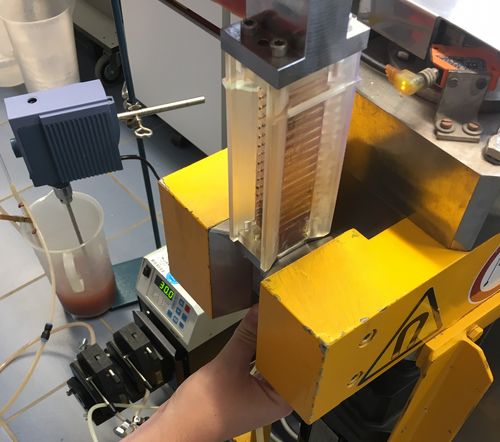
The goal of the project KONTUR is the development of a new optical measurement method, in cooperation with the company OPTO4L GmbH, which is able to carry out a contour measurement in suspensions (e.g. in fermentation broths, food like wine, etc.) even under severe optical conditions. A primary application can be seen in magnetic filtration and the increasing accumulation areas of the magnetic particles in the magnetic filter. Besides, the technology to be developed can also be adapted to other measuring problems in such suspensions.
The research project is funded by the European Regional Development Fund and the State of Rhineland-Palatinate as part of the "InnoProm II" programme.
Doctoral student: Lars Wommer. Supervising professor at Trier University of Applied Sciences: Professor Percy Kampeis
Under the direction of Professor te Heesen, the "RERAP - Resource Efficient Rapid Prototyping" project will bring together several regional, mainly metal-processing companies from the Hunsrück-Hochwald region. The focus of the project is on scientific research and competence building on energy and resource efficiencies through generative manufacturing processes (3D printing). Trier University of Applied Sciences is investigating innovative production techniques of the entire manufacturing process from an initial idea to a finished component.
Since November 2018 the project is funded by the European Fund for Regional Development as part of the "Investments in Growth and Employment" (IWB).

ZENAPA is rising to the challenge of reconciling Germany's energy system transformation with a wide range of requirements, in terms of both climate protection and nature and species conservation. The project aims at the CO2 neutrality of protected areas bordering rural districts and sets national and European climate protection targets taking into account national and European biodiversity and bioeconomic strategies. The project area comprises 11 large protected areas (national parks, biosphere reserves, nature and geoparks) and their bordering districts as well as the "Model Municipality of Rhaunen" and covers more than 10% of the total area of Germany.
ZENAPA will develop 12 climate protection master plans, one for each partner region, providing a customised action plan for energy efficiency, renewable energies and nature conservation to be implemented by partners within eight years. This planning process is complemented by the development of a more detailed implementation plan with so-called "Strategic Biodiversity and Climate Protection Concepts". They are based on the active rehabilitation of residential areas according to the methodology of the "Energy Efficient Urban Rehabilitation" programme under the KfW. These concepts are developed for 90 counties and districts and provide technical and economic preparation for the implementation of energy efficiency measures, regenerative energies, district heating systems and in this context, measures for nature conservation and biodiversity.
Additionally, ZENAPA ensures that each project partner has a local climate protection officer, which coordinates the ZENAPA project management and the implementation process in the partnership regions.
ZENAPA is also aiming to implement actions in the target regions through public sectors, private companies, the food industry, agriculture, tourism and especially the local population. To promote and reach a broad spectrum of target groups in the project area, each partner conducts various activities on the project themes. This process is complemented by the development and implementation of innovative financing models and newly established local energy companies. As a result, the added value generated in the region will be preserved. The development of regional funds and the "Certification Model: Climate and Species Protection" are essential elements for the financing of measures by various stakeholders in the local project partners. The development of regional funds and the "Certification Model: Climate and Species Protection" are essential elements for the financing of measures by various stakeholders in the local project partners.
ZENAPA is funded by the European Union to the value of 8 million euros under the LIFE funding programme for Environment, Nature Conservation and Climate Policy, Climate sub-programme for the period 2016-2024. The lead beneficiary is the Institute for Applied Material Flow Management at Trier University of Applied Sciences, Environmental Campus Birkenfeld. The partners are: ANE - Academy for Sustainable Development, LfU - Brandenburg State Office for the Environment, Geopark Porphyrland - Steinreich in Sachsen e.V., Wurzener Land - Werke GmbH, Naturstiftung David, Bergischer Abfallwirtschaftsverband, Natur- und Geopark Vulkaneifel GmbH, Landkreis Vulkaneifel, Nationalpark-Verbandsgemeinde Rhaunen, Syndicat pour l'aménagement et la Gestion du Parc Naturel du "Mëllerdall" (LU), National Park Agency Hunsrück-Hochwald, District Association Pfalz, Biosphärenzweckverband Bliesgau, Saarpfalz-Kreis and Stadt St. Ingbert.
The Interreg V A Greater Region project "AROMA" aims to establish a network of stakeholders in the agricultural and food sector which transcends borders within the region. AROMA aims to expand the supply of local quality products for out-of-home provisions.
The Institute for Applied Material Flow Management at Trier University of Applied Sciences is one of the twenty partners in AROMA.
The 18 project partners of the cross-border project "Pierres Numériques - Digital Stones" set up a network to build a dynamic project of highlighting and sharing the remarkable heritage of the Greater Region through innovative and digitized activities, techniques and tools. In the framework of this project, the Campus Design of Trier University of Applied Sciences has carried out the following actions:
During August/September 2016, the first phase of the project was carried out. With the support of artistic activities (creation of artworks in interdisciplinary workshops, theatre and music events, exhibitions, video mappings etc.) as well as sociological and historical workshops, people were sensitised to historical and cultural processes in Europe and their resulting cultural heritage.
As part of the "aproposluther" project, a wooden construction with an interactive installation was installed in front of and in the Basilica Konstantin in Trier, which focused on the life and work of Martin Luther. On the occasion of the 500th anniversary of the Protestant Reformation, the interactive installation offered visitors the opportunity to explore Martin Luther's life and work in a hands-on way at a total of five stations.
From 12th to 14th October 2018, the Design Campus of Trier University of Applied Sciences celebrated an exciting festival, which presented the creative potential of the city of Trier and its students. About 60 events and exhibitions took place on the Campus Design, attracting regional and international visitors. Places like the Porta Nigra in Trier's city centre were artistically staged. Since the event takes place as part of the Karl Marx Year 2018 (200th birthday of Karl Marx), the life and work of the philosopher and social critic was one of the topics that students, lecturers and artists discussed critically and creatively.
GREATER GREEN is the meta-cluster for environmental technology in the Greater Region. It researches information and consulting services for the environmental technology sector in the Greater Region. Specifically, the creation of new market access is at the centre of efforts. This is achieved by targeted joint marketing of the Greater Region as an environmental technology competence region. GREATER GREEN acts as a meta-cluster in a direct form with the regional coordinators and the member clusters connected in the network. The positive side effect of GREATER GREEN is to promote the offers of these clusters across borders.
To increase the visibility of environmental technology in the Greater Region, GREATER GREEN attends trade fairs (such as the World Efficiency Forum in Paris or the IFAT in Munich) and organizes GREATER GREEN Days (as part of the Green Win Conference "Green Chemistry and White Biotechnology"). Besides, GREATER GREEN organizes its events on the core topics of environmental technology, water and sanitation, sustainable construction, renewable energies, as well as environmental services and recycling. In October 2018, a conference took place in Trier in cooperation with the Quattropole, the Interreg project GReENEFF, the LIFE project ZENAPA and the Stadtwerke Trier. Under the motto "Sustainable planning, construction and management services - ideas, concepts and implementation in the Greater Region, around 160 experts from the entire Greater Region discussed the cradle to cradle principle and criteria for sustainable construction. GREATER GREEN is also working on an inventory of the environmental technology sector in the Greater Region, which is to be completed in spring 2020 with the publication of exemplary projects ("lighthouse projects").With the expansion of the network to currently 27 partners, theproject consortium has been approved for an extension until September 2020.
In the European Interreg project "Robotix-Academy" universities, institutes and companies of the Greater Region, consisting of Saarland, Rhineland-Palatinate, Luxembourg and regions of Belgium and France work together on the development and application of new methods in Robotics. The cooperation of humans with robots (Human-Robot Collaboration, abbreviated MRK -HRC) plays an important role. This role ensures that the production of products with minimal quantities but a high number of variations, which is increasingly being demanded, becomes faster and less stressful for humans. New markets, even outside the industrial sector, can be opened up by small and medium-sized companies, e.g. in the handicraft sector. The robot should assist humans, and it can be used, for example, as an intelligent tool or take over holding functions.
At the Environmental Campus of Trier University of Applied Sciences in Birkenfeld, scientists from the Robotix-Academy are working on the development of new processes for the use of Robot Assistants. The distribution of work processes between humans and robots should be optimized, and the interaction between humans and robots should become more manageable. Remanufacturing will serve as an application scenario, which involves dismantling and dismantling industrial products already in use, such as electric engines, coolant pumps or electronic control units, and cleaning and testing the individual parts with the aim of reusing the components in the production of new devices. The remanufacturing saves resources and reduces emissions. During the dismantling process, the robot assistance system acts together with human in a hybrid workplace and can support it by assisting activities or taking over complete process sequences. This approach combines the strengths of the human and the robot system. The human being's flexibility allows him to react to unexpected conditions, which can mainly occur during the dismantling process due to the unknown status of the product. The robot, however, can handle heavy products, tools and components and carry out repetitive process steps fast and accurately. In cooperation with partner companies, demonstrators will be set up at the Environmental Campus with the help of which various remanufacturing processes will be presented. As part of a technology transfer, companies will have the opportunity to test new applications in the Robotix Academy.
During the start-up and development phase, entrepreneurs often do not recognise the opportunities offered by networking in the Greater Region. For this reason, the project platform for entrepreneurs and students at universities in the Greater Region (PUSH.GR) has set itself the goal of facilitating sustainable cross-border cooperations in business start-ups and networking. In this way, new cooperation partners, markets and customers within the Greater Region and the EU can be developed.
The measures
The first central aspect of the project is the sensitisation to the establishment. Best practice start-up initiatives are designed to raise the awareness of students and people interested in setting up their own business. These success stories will be collected by the TU Kaiserslautern and will serve as a basis for communication measures in the entire Greater Region. In this way, the students and those who are interested in setting up a business will be informed about the possibility of starting a business. Furthermore, innovative ideas or project cooperation’s in the Greater Region will be awarded by a new PUSH.GR start-up competition. This will be developed by htw saar and will take place annually from 2020.
The project is not only about the communication of the potential and chances of start-ups in the Greater Region, but also about assistance in overcoming national obstacles and peculiarities of the different countries. Trier University of Applied Sciences (Prof. Dr. Hubert, Prof. Dr. Nitschmann) will research and provide the legal and fiscal framework conditions of the respective countries in the Greater Region. The University of Liège will demonstrate the financing possibilities offered to young entrepreneurs and founders in the Greater Region.
All these elements will be developed and published on an innovative, attractive and trilingual (German-French-English) Communication Platform. The online platform is developed by the Dudweiler Company Eurokey Software GmbH and is considered the central heart of the PUSH.GR project.
Besides a freely accessible area for all interested target groups, there will also be a data-protected user area. Here individual companies can get in touch with each other and exchange information about their activities, their successes and partners.
Through cross-border mediation and matchmaking formats such as Business-Speed -Dating, keynote speeches and cooperation agreements, Saarland University and the INTERFACES - Gründerzentrum EURODEV CENTER will ensure close cooperation between start-ups, scale-ups, SMEs and the young and established companies in the Greater Region.
The partners
The following companies and institutions are involved in the project as operational partners: Creation International Belgium SPRL; EUROKEY Software GmbH; Grand E-nov; Hochschule für Technik und Wirtschaft des Saarlandes; Hochschule Trier; INTERFACES - Gründerzentrum EURODEV CENTER; ISEETECH; Technische Universität Kaiserslautern, Technoport SA-Belval, Universität des Saarlandes, Universität Trier, Université de Liège - Campus Arlon.
They will be supported by the following strategic partners: CFALOR - Deutsch-Französisches Zentrum Lothringen; Chambre de Commerce et d'Industrie du Luxembourg Belge; Chambre de commerce Luxembourg; Conservatoire des arts et métiers en Grand Est; FITT gGmbH; Hochschule Kaiserslautern; IHK Saarland; Innovations- und Gründerzentrum Region Trier GmbH; Lorraine Inside; Ministerium für Wirtschaft, Arbeit, Energie und Verkehr des Saarlandes; Nyuko a.s.b.l.; Semia; Sparkasse Saarbrücken; University of the Greater Region; Wirtschaftsjunioren Saarland e.V..
The PUSH.GR project is supported by the INTERREG V A Greater Region programme with 2.1 million euros from the European Regional Development Fund (ERDF). The total budget approved for the period 01.01.2019 - 31.12.2022 is over 3.5 million euros.
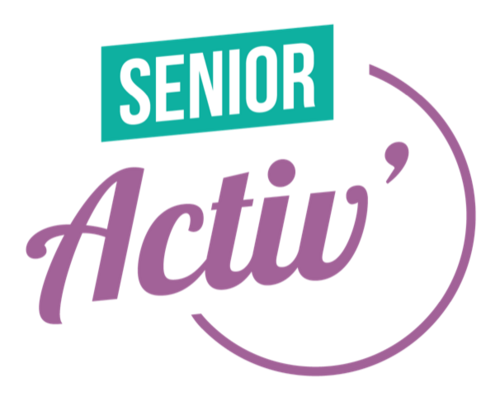
The SENIOR ACTIV' project aims to improve the living conditions of senior citizens and older frail people in the
Greater Region by taking measures to achieve the following:
The project will carry out cross-border trials that will make it possible to find solutions at the following levels:
![[Translate to Englisch:] Logo Projekt Vehicle](/fileadmin/Hochschule/Forschung/Forschung_Hauptseite/Logos/Logo_VEHICLE_-_DE.jpg)
The VEHICLE project develops solutions to transcend the technical limitations of conventional purely electric or plug-in hybrid vehicles.
The main weak point is the battery system, mainly due to long charging times and limited energy content, but also premature ageing due to high charge/discharge dynamics. One solution is to use a combination of complementary storage technologies to create a hybrid storage system consisting of a lithium-ion battery and a supercapacitor. The operation of this system requires the use of dedicated energy management systems.
Within the framework of the project, a system of this type is to be developed using predictive algorithms, with help of which statements on dimensioning, service life and total operating costs can be made for a vehicle and corresponding optimizations made.
Based on experimental work at the Environmental Campus Birkenfeld ("Battery Diagnostics"), a deterministic model for battery degradation depending on the load profile will also be developed.
VEHICLE is funded within the framework of the Science Offensive 2018, an initiative of the European Union and the French, German and Swiss local authorities (Greater Region Est, Baden-Württemberg, Rhineland-Palatinate and the Northwestern Cantons of Switzerland), which has the aim of financing outstanding research projects in the Upper Rhine region.
Consortium: Partners: INSA Strasbourg, Trier University of Applied Sciences (Prof. Dr. Gregor Hoogers, Environmental Campus Birkenfeld), Karlsruhe University of Applied Sciences / Associated Partners: Centrale Lille, Université de Nantes, Sheffield Hallam University, CCI Alsace Eurométropole.
Duration: October 2019 – September 2022
sponsored by the European Regional Development Fund, the State of Baden-Württemberg, the State of Rhineland-Palatinate, the Grand Est Region in the Science Offensive 2018 and Interreg V A Upper Rhine programmes.
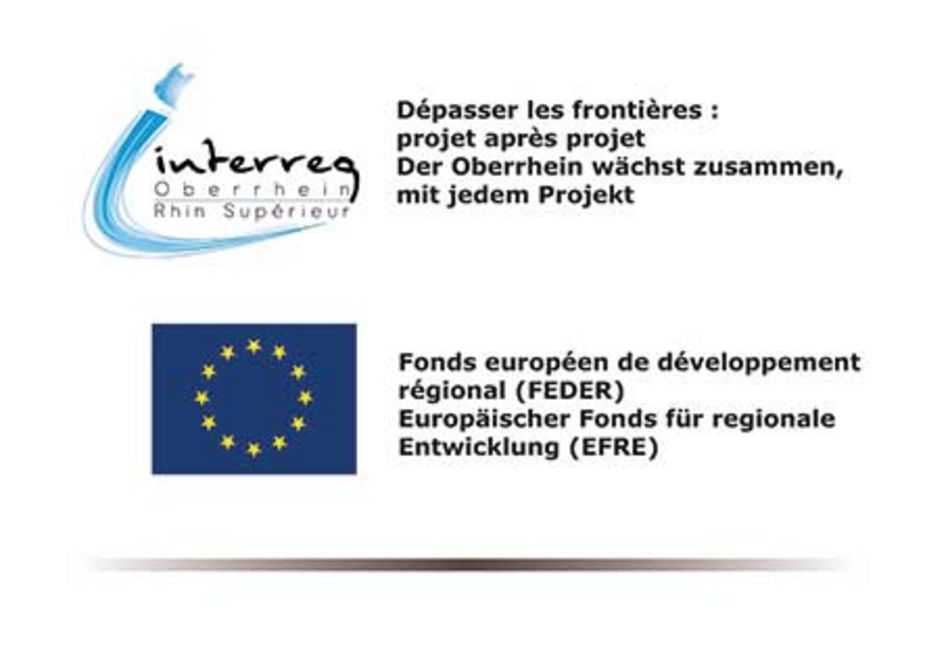
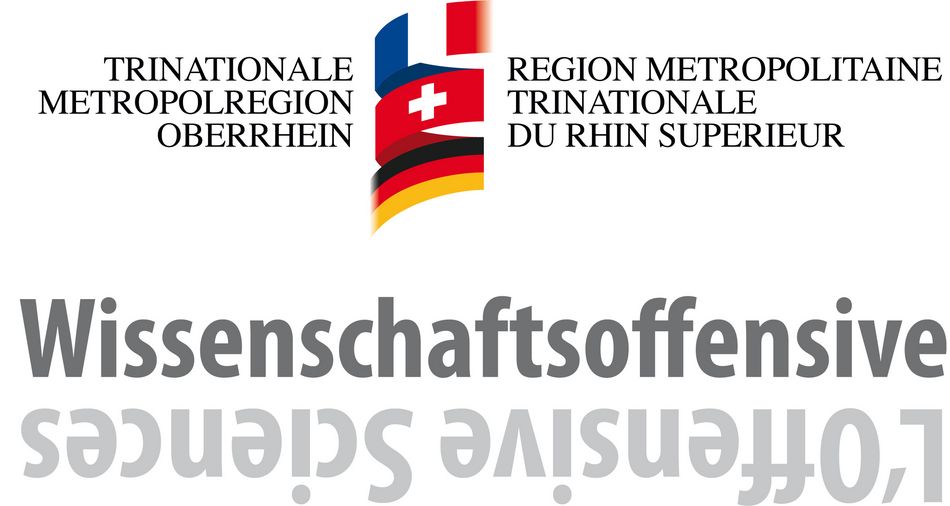
![[Translate to Englisch:] Gruppenbild des Projektteams "Groof"](/fileadmin/_processed_/d/0/csm_groof_meeting_-_web_903591949e.jpg)
GROOF's idea is to use an intelligent combination of buildings and greenhouses (integrated rooftop greenhouse (IRG)) to reduce CO2 emissions from greenhouse production in north-western Europe. Since it is assumed that IRG's have a lower heating requirement than conventional greenhouse production when planned suitably, in particular, the combination of building and greenhouse could contribute the transmission heat from the top floor ceiling as well as the waste heat potential of the building to the heating of the greenhouse. As a synergy effect, the exhaust air from the building could also be used to fertilize the plants with CO2. The possible primary energy savings in greenhouse cultivation will be tested and demonstrated, and the resulting CO2e reduction potential will be presented, taking into account different framework conditions (building, greenhouse and equipment). Local and consumer-oriented production also eliminates the need to transport food by truck, which also contributes to CO2 reduction.
In three experimental projects
decentralized energy supply systems on the basis of regenerative technologies (photovoltaics, wind, tidal streams) and storage will be shown. In this context, system-inherent storage systems from load shifting potentials will also be investigated. Based on the experience gathered with the pilot installations, a master plan will be developed for the further diffusion of similar systems within north-western Europe.
Learn More
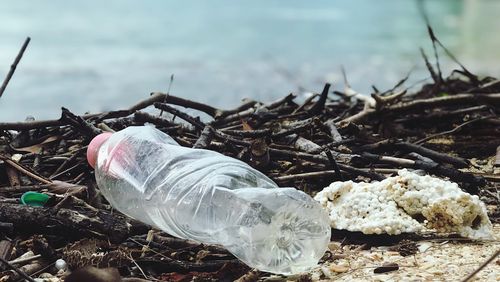
Single use plastic (SUP) causes enormous pollution in our environment: 8 Mt/yr SUP leaks into our oceans ending up as microplastics affecting our ecosystems. NWE generates the biggest source of SUP (40% of Europe). Uptake for recycled content in new plastic products is low. In 2016 EU plastic production was 60MT and only 8MT was collected for recycling. EU plastic industry relies upon imported virgin plastic. Supply from recycled SUP could meet this demand. Plastic export ban to China (2018) meant demand for recycled plastic dropped.
In response high levels of SUP are sent to Energy-from-Waste (EfW)/Landfill. There is urgency for NWE to develop its own plastic recycling economy to reduce reliance on import markets, to repurpose, revalue existing SUP, creating demand for recycled products, diverting valuable plastic away from EfW/Landfill. TRANSFORM-CE uses all types of SUP: low valued plastics such as foils i.e. thin packaging films into moulded products using intrusion-extrusion moulding (IEM); higher valued plastics i.e. pre-sorted drinks/cleaning bottles into Additively Manufactured (AM) products, providing businesses with an alternative to virgin plastic feedstock, creating demand for reuse, invigorating market uptake of recycled plastic into new products, supporting business to adopt Circular Economy models.
Pilot investments provide scalability of technology to stimulate new secondary material markets across NWE for re-manufacturing demonstrating that municipal waste plastic can be re-purposed/revalued with estimated diversion of 2580t plastic over 3 yrs. Pilots provide dual options for diversion ensuring that manufactured product uptake is across a range of simple/complex product designs. AM provides opportunity for integration into complex products, IEM provides opportunity for simpler single unit designs. Long-term uptake through scaling up of the technology with industry investment, potential to divert ~55 Mt in 10 years.


You are leaving the official website of Trier University of Applied Sciences